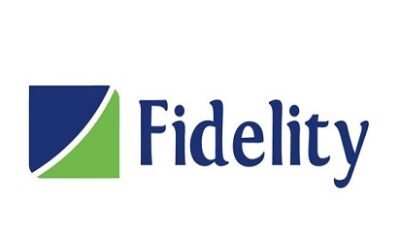Gone are the days when the top echelons of companies were almost exclusively filled by men as more companies continue to boast female chief executive officers (CEOs) who are making their mark and reshaping the business landscape.
Here are Nigeria’s highest-earning female CEOs. Leading the pack of high-earning female CEOs is Nneka Onyeali-Ikpe, the CEO of Fidelity Bank Plc.
Nneka Onyeali-Ikpe, the CEO of Fidelity Bank Plc (Earned N110 million)
Onyeali-Ikpe, with her impressive track record of over 30 years in the banking sector, earned a staggering N110 million in 2022, maintaining her earnings from the previous year.
Assuming office as the managing director and CEO of Fidelity Bank on January 1, 2021, she succeeded Nnamdi Okonkwo.
Prior to her current role, she served as an executive director, overseeing the bank’s business in the South West region of Nigeria.
Onyeali-Ikpe’s leadership prowess has propelled her to the top of the earnings ladder, inspiring aspiring female leaders across the nation.
Owen Omogiafor: Driving Success at Transnational Corporation Plc (Earned N90 million )
Another remarkable figure among Nigeria’s highest-paid female CEOs is Owen Omogiafor, the president and CEO of Transnational Corporation Plc.
Heading a conglomerate comprising various businesses, including Transcorp Hotels Plc, Teragro Commodities Limited, and Transcorp Power Limited, Omogiafor earned N90 million in 2022.
With an extensive background spanning two decades, she brings expertise in organizational development, human capital management, banking, change management, hospitality, and energy.
Omogiafor’s remarkable career has seen her serve on the board of Avon Healthcare Limited and as a member of the Board of Trustees of the Association of Power Generation Companies in Nigeria.
Her contributions extend far beyond her immediate role, making her a prominent figure in the Nigerian business landscape.
Dupe Olusola: Pioneering Change at Transcorp Hotels Plc (Earned N62.7 Million)
Dupe Olusola, the managing director and chief executive officer of Transcorp Hotels Plc, is the second woman to lead the prestigious organization. Olusola’s dedication and leadership have earned her recognition and financial success, with earnings of N62.7 million in 2022, a slight increase from the previous year.
Her career journey started in 2002, and she has held various positions in renowned institutions such as African Capital Alliance and United Bank for Africa (UBA) Plc. At UBA, she played a pivotal role as Group Head of Marketing, devising and implementing integrated strategies for all UBA Group Bank and non-bank subsidiaries.
Olusola’s relentless pursuit of excellence has propelled her to the helm of Transcorp Hotels Plc, solidifying her position as a trailblazer in the industry.
Oluwatomi Somefun: A Visionary Leader at Unity Bank Plc (Earned N41.7 Million)
Completing the lineup of accomplished female CEOs is Oluwatomi Somefun, the managing director of Unity Bank Plc. Somefun, with her impressive academic credentials and extensive experience in the financial service industry, earned N41.7 million in 2022.
A graduate of English Language from Obafemi Awolowo University, she further honed her skills through advanced studies at prestigious institutions such as Harvard Business School and the University of Columbia Business School.
Somefun’s journey began with renowned firms like Peat Marwick and Co. and Arthur Andersen (now KPMG), before she assumed the role of executive director at Unity Bank plc. Her tenacity and commitment to excellence have propelled her to the top ranks of Nigeria’s banking sector.


 Billionaire Watch3 weeks ago
Billionaire Watch3 weeks ago


 Startups4 weeks ago
Startups4 weeks ago


 News4 weeks ago
News4 weeks ago


 News4 weeks ago
News4 weeks ago


 Bitcoin4 weeks ago
Bitcoin4 weeks ago
 Naira4 weeks ago
Naira4 weeks ago
 Forex3 weeks ago
Forex3 weeks ago
 Treasury Bills4 weeks ago
Treasury Bills4 weeks ago
















